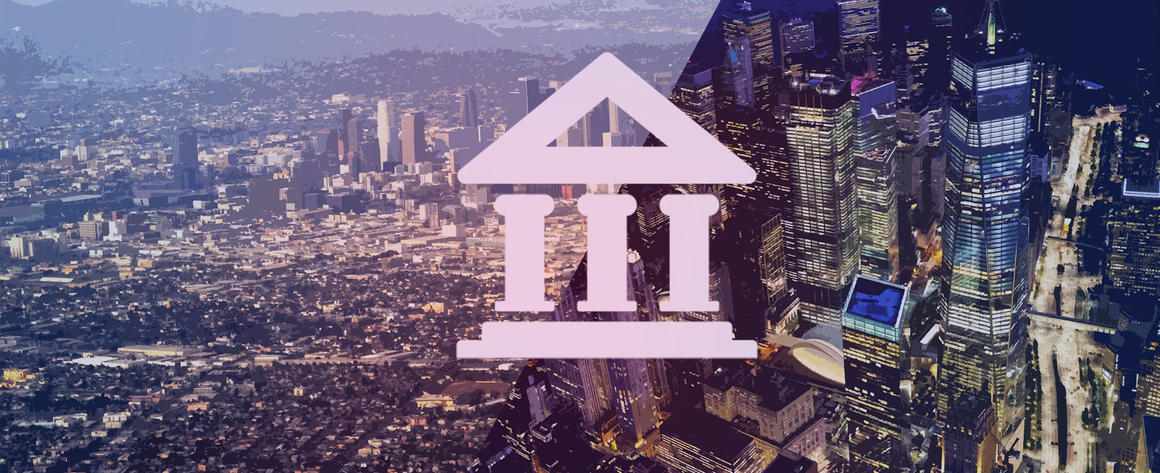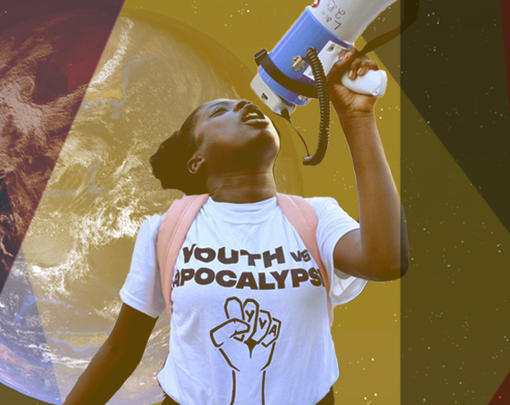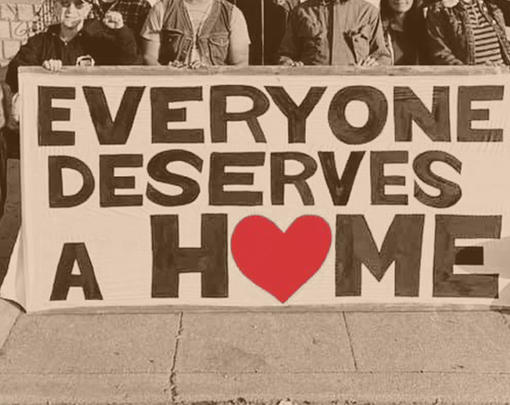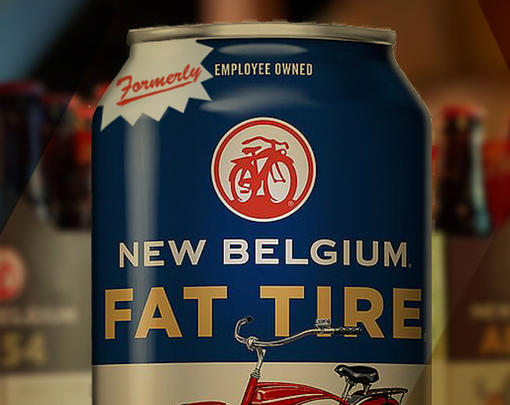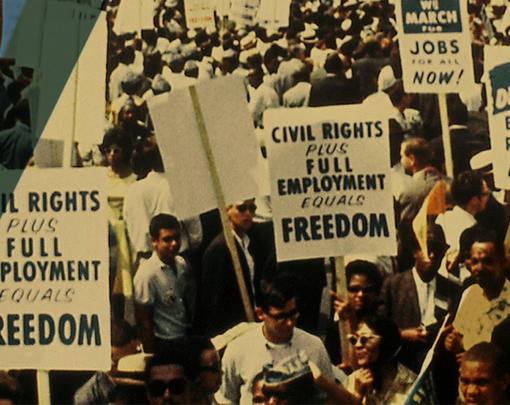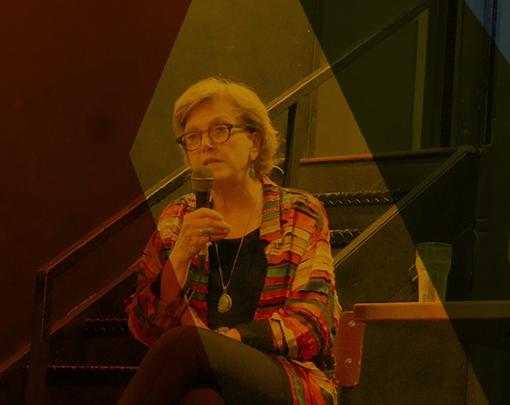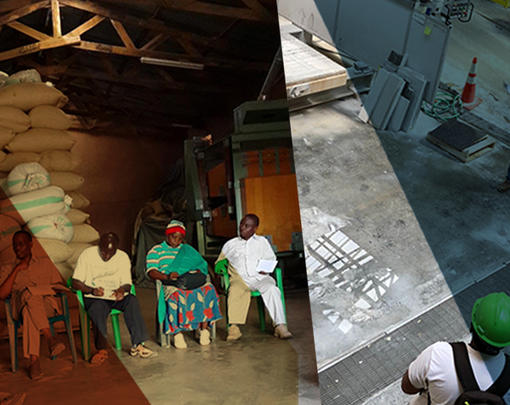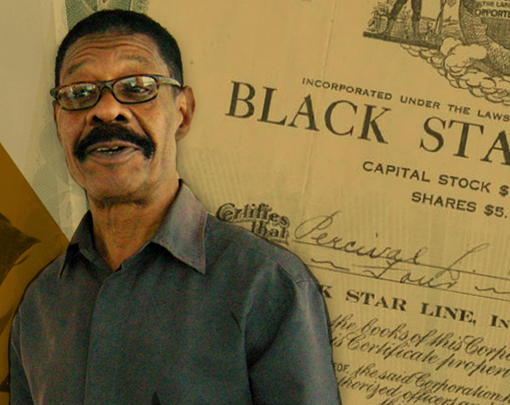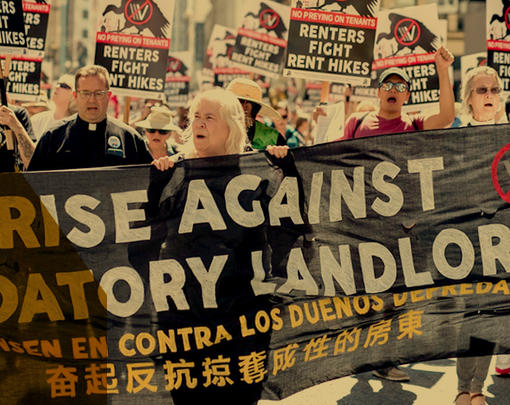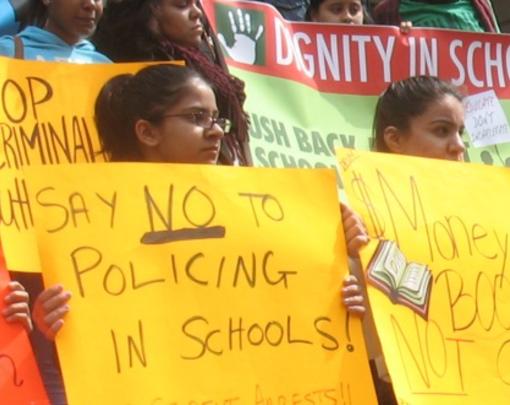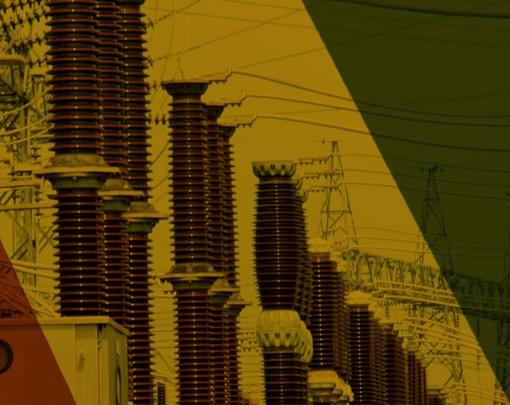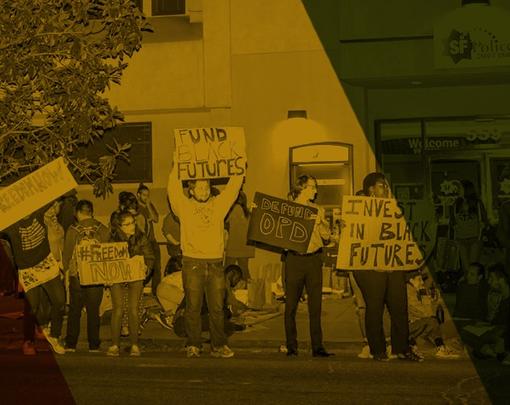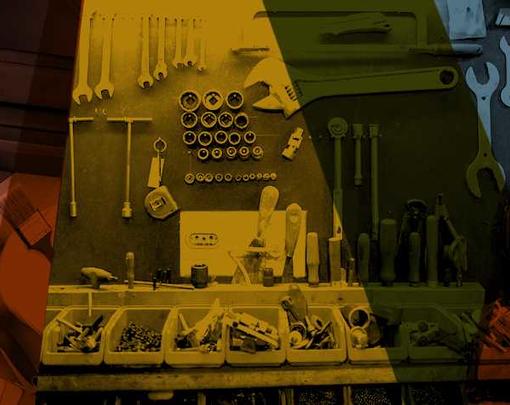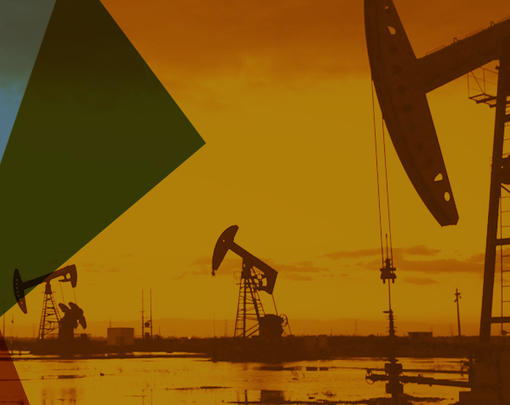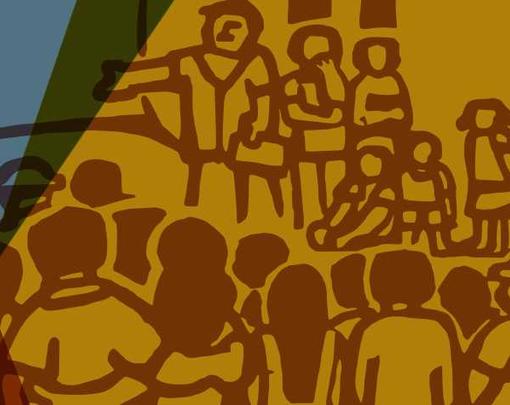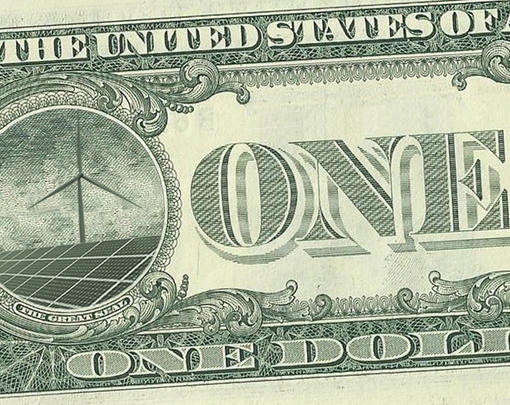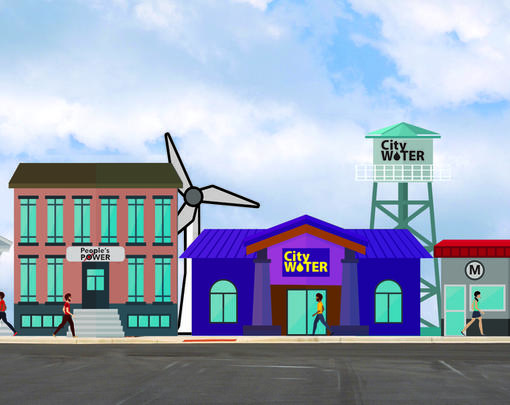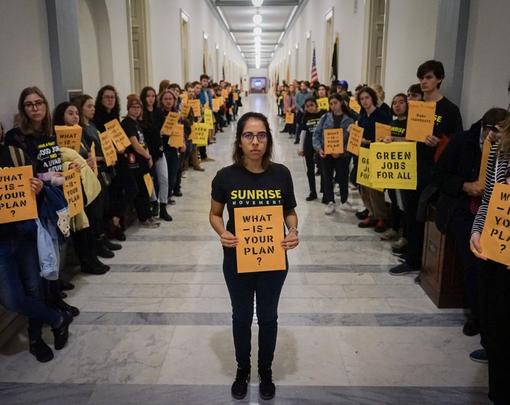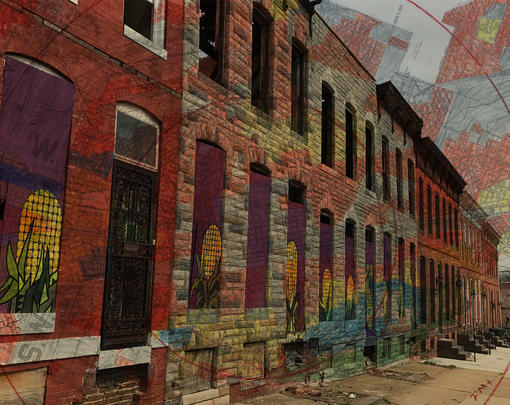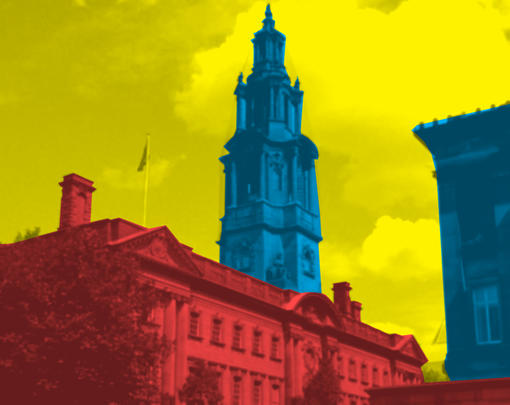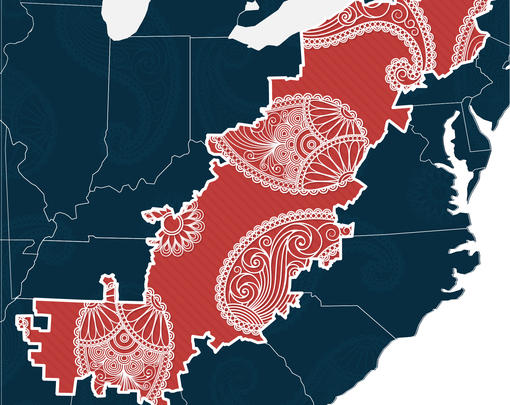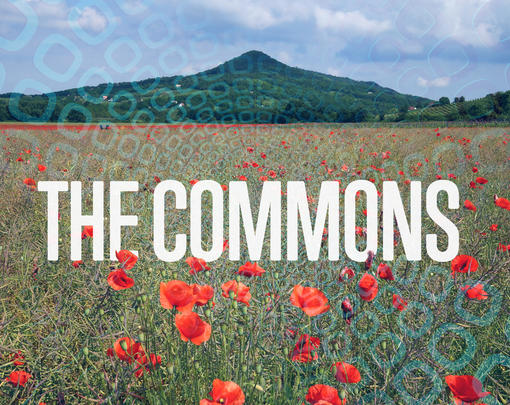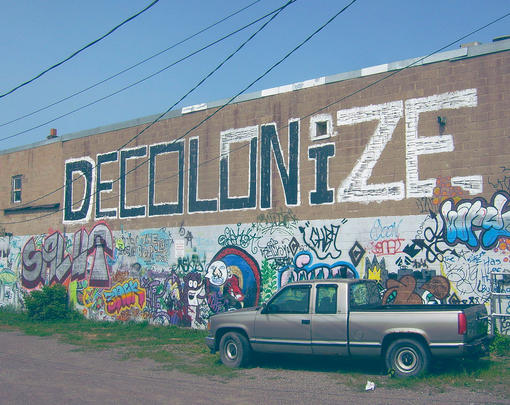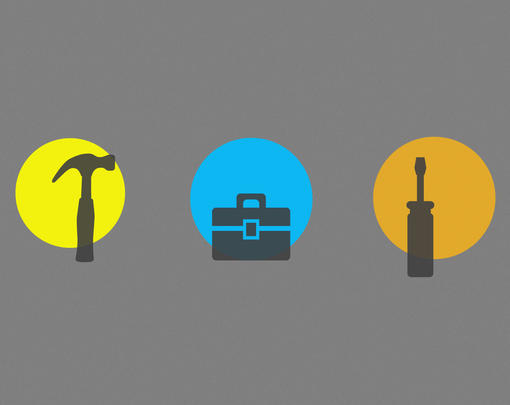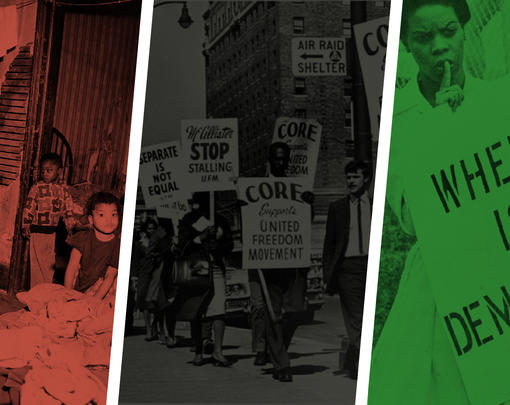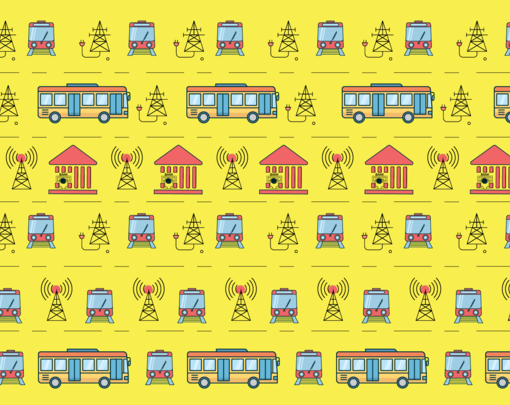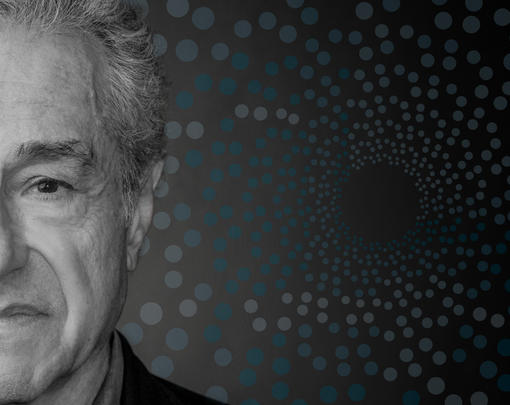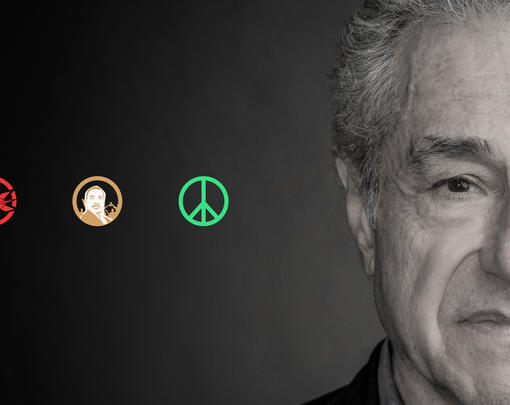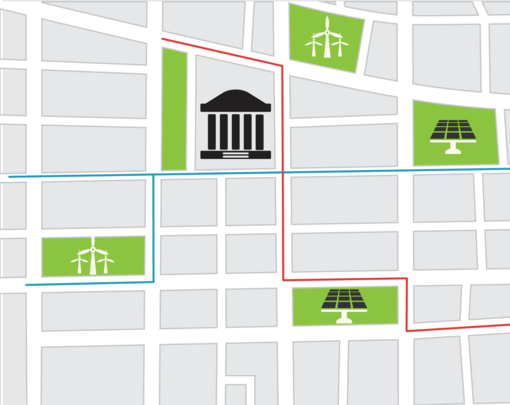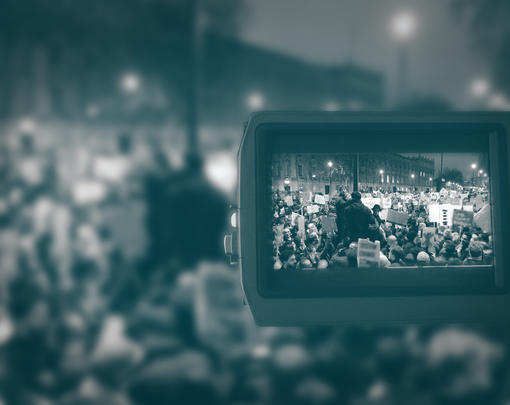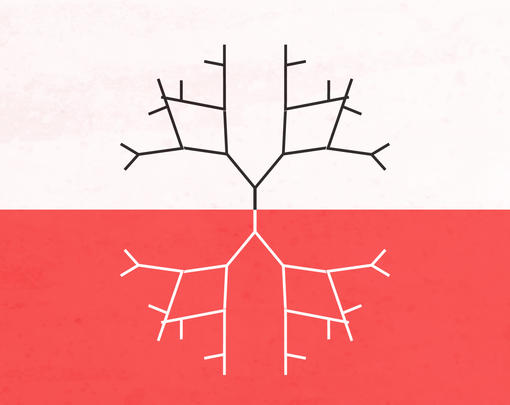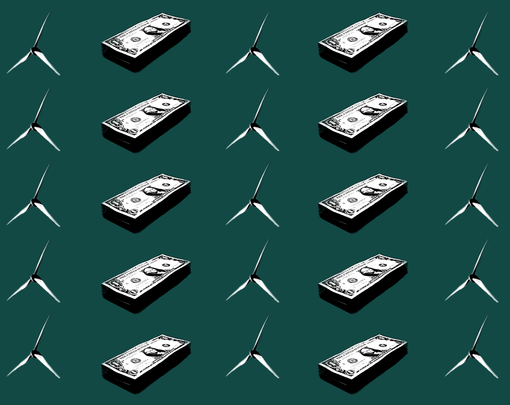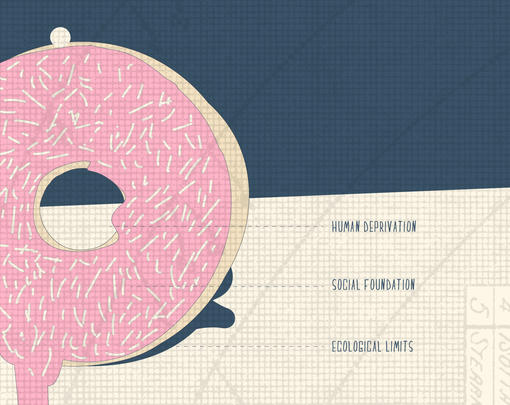This week on the Next System Podcast David Jette from Public Bank LA and Juleon Robinson from the New Economy Project, a member of Public Bank NYC, a broad-based coalition of community, worker rights, economic justice, and environmental groups to sit down to discuss the transformative potential of public banks. These institutions aim to hold finance publicly accountable, directing credit into the real economy with the public goods prioritized over profit.
The Next System Podcast is available on iTunes, Soundcloud, Google Play, and Stitcher Radio. You can also subscribe independently to our RSS feed here.
Adam Simpson: I am here today with two guests to talk about two public banking campaigns, coast to coast. David Jette is the co-founder and legislative director of Public Bank LA. David is a financial analyst and consultant with 10 years in the tech real estate and start-up sector, as well as a life-long activist and organizer. David, welcome to the program.
David Jette: Thank you for having me.
Adam Simpson: We also have with us Juleon Robinson, a program associate at the New Economy Project, where he co-produces and hosts the organization’s podcast and conducts research to support campaigns like the ongoing campaign to establish a municipal bank in New York City. Juleon, welcome to the program.
Juleon Robinson: Thanks for having me as well.
Adam Simpson: Before we get into public banks, let’s talk about the problem first with our current system. Our current financial system is dominated by enormous, powerful intuitions. It’s owned by and operated for the benefit of a handful of shareholders. What are the consequences of such a system, and in your work what motivates you to pursue reform in this sector as you do?
Juleon Robinson: I think most people are aware of the consequences of the financial system, especially at the national level. We’ve seen companies like Wells Fargo commit widespread fraud and maintain most of its business. We’ve seen the government bail out banks despite their having caused a financial crisis only 10 years ago through their reckless profiteering. And in a place like New York City that’s both home to many communities of color, many immigrant communities, we’ve seen these mega banks that routinely extract wealth from those neighborhoods. The consequences are really present for our campaign, our coalition, and all the groups that we work with. The members of the public bank in the New York City coalition work in these neighborhoods all over New York City that are reeling from predatory lending, from foreclosures, from eviction, job loss, and other problems that are really caused by Wall Street.
For decades we’ve seen this financial system redline low-income communities. We’ve seen Wall Street find new ways to exploit and extract wealth from Latino households by two-thirds. For our coalition, and our entire campaign, basically we see these consequences. We see this financial system. It exists by design. None of these consequences are by accident. They are the result of a system that’s designed and controlled by these mega banks, these Wall Street banks to extract the most wealth that they can, whatever the cost to families, whatever the costs to neighborhoods, whatever the cost to entire communities. That’s sort of the context we’re working with in.
David Jette: Absolutely. A major consequence of the way that banks lend, and the way that businesses operate, is a permanent growth mindset, an ideology that this supply of money must constantly grow. The profits must outpace inflation, and that the most possible value must be returned to the top of the pyramid. That mindset is built into the DNA of every bank, and not only does it lead to the inequality and extractive effects that Juleon talks about, it also has its impact on the environment as well. Extracting resources in order to feed that permanent growth leads to recklessness, and obviously the buildup of carbon dioxide in the atmosphere is going to raise temperatures, and drastically change the face of life on earth. Every dollar that’s spent by a company extracting fuel and transporting it to be burned is contributing to that, and the loans that are made to those companies are directly responsible for that activity.
Wells Fargo was a major funder of the Dakota Access Pipeline, which was a major expansion of fossil fuel infrastructure in the country, and it’s stepped over the human rights and indigenous rights of the people of Standing Rock, and that was a major motivator for us in L.A. when a lot of those activists came back to California. They were outraged and they rightly wanted their local cities to divest from banks like Wells Fargo. But beyond that, the power that divestment has is not just to starve them of resources. Of course, they control much of the resources. But there’s one resource that they have a monopoly over, and that’s the creation of money and the extension of credit. And being able to do that with banking powers or with deposits is a special power that banks have, and they use it purely for their own ends. They own the Federal Reserve System. They elect most presidents and senators, and congresspeople. And that power is squarely in their hands, so when we examine capitalism, I try to separate it a little bit from lending unto itself, because that special money power is a public power. It’s one that we grant to them, and we back up with our full faith in credit.
Adam Simpson: Say a little more about that, because one way as you said to think about the power of bank lending is recognizing that banks actually have the power to create money through the lending process. There are a lot of misconceptions about banks function. A lot of people believe when they put their deposits in a bank, the bank takes that and makes loans. Have either of you had difficulty talking to people about the role a bank plays in society, and therefore what role a public bank could play?
David Jette: Yes, I think there is a veil of secrecy around finance and banking, and it’s one that is very intentional, like Juleon said. This sort of cloistered profession where only Yale and Harvard graduates can run the biggest banks, and they get paid these insane salaries and bonuses for creating alpha, right? Even though the nomenclature is purposely opaque. And a lot of that obscures some pretty simple mechanisms. Banks operate on a couple of basic principles. They take deposits. They make loans. They borrow money from the Federal Reserve at a low interest rate, and they lend it at a higher interest rate. They borrow money from each other, and they lend money to each other. They borrow money from companies, and they lend it to companies. But ultimately the interest that is paid on every one of these loans is generated by a regular person going to work every day, whether that’s paying their mortgage, or paying taxes that pays the interest and debt service the government pays on bonds, which of course makes the basis of all safe cash-flow assets in our economy that promise that taxpayers will make good on their public debt.
All of that is repurposed into financial shares, the profit enjoyed by the very small number of people that control the very large majority of shares in banks. When you try to explain these things to folks, sometimes their eyes glaze over because they’ve been told that they can’t understand these things, or maybe it’s the immensity of the numbers. I think some people don’t have an intuitive understanding of scale, and banks operate on such a large scale that it seems like it’s out of reach for regular people. People understand their own finances, and they know that if I borrow ten dollars from you, that I owe it to you. And I can’t just create ten new dollars to lend to someone else. But that’s what banks do. When you put your money in a bank, it’s a deposit. It’s basically a loan that you’re making to the bank, and they are in turn supposed to go lend that to someone else, invest it properly. But in reality, they enter a new entry for the checking account of the borrower, who can take that money anywhere. It’s not just a theoretical asset, it’s a real thing in our economy. And it’s how money grows.
And money is useful for regular people. In fact, that’s why we create it, and that’s why we trust it. And public banking, of course, is trying to take that power and put it under some modicum of democratic control whereas right now, it’s subject to none.
Juleon Robinson: I would say we very much agree with exactly how Dave framed the function of banking, and some of the misconceptions around banking. Like you said, I think that banking is financial power, right? And the city’s banking is the city’s financial power. That’s our money as New Yorkers, and that’s our financial power as New Yorkers. And it should be very clear and transparent to us residents where the money’s coming from, where it’s going, where it’s sitting in between. It should be clear how public money is impacting the lives of every day New Yorkers in New York communities. A very central component of our campaign is beginning to try and sort of untangle these knots in the city’s finances so people can see how the city’s public money flows through their lives, flows through their neighborhoods, and flows through their opportunities, or the lack thereof.
Those conversations don’t just belong in boardrooms, and they don’t just belong to people in suits. They belong to everyday New Yorkers. They belong to everyday people. The more that we can get everyday people having conversations around New York’s finance, and what that financial power means to them as members of their community, as members of their city, the more exciting the idea of a public bank becomes, and the more people understand the real power a public bank could have in reshaping the way investment and divestment as two sides of the same coin work in New York.
David Jette: I’ll tell you one last thing on this point. What isn’t hard to explain to people is that Wall Street is the root of a lot of problems. That was more than evident just 10 years ago. This is a living memory; even teenagers remember when parents lost their jobs, lost their homes when the value of everything dropped very quickly because of the mismanagement of banks by the same people who are now opposing those public banks. One of the great pleasures that I have especially in talking to organizers and other community groups is that public banking offers a positive, constructive solution to many of the harms they are trying to mitigate, and problems they are trying to solve. Here in L.A., affordable housing is issue number one. We have a homelessness epidemic. Housing costs are astronomical, and people are being displaced at a very quick rate. The city is being resegregated by it. It’s an emergency. Public banking offers some hope, some kind of capital source for new housing for community land trusts. It speaks to climate change activists, inequality and racial justice activists, indigenous rights. All these folks see public banks as finally something that they can put out there that is a positive, and something to look forward to.
Adam Simpson: What role do you think public banking institutions can, or will play in changing our current economic context? To put a bit of a finer point on it, what do you both think about a public institution given we’re in the context of capitalism? Juleon, you know the public bank will have Wall Street down the road, right? So what do you think it is about a public institution that such an institution would not prioritize the profit motive over things like, as you said, social goods like racial justice, like environmental justice, etc.?
Juleon Robinson: I think to answer your question, we’ve already discussed the way the current financial system is already set up; it’s predicated on extraction, whether that’s extraction from natural resources, as David was saying, or extraction of wealth. So for us, one of the really big roles of a public institution, like a public bank, is to empower New Yorkers, particularly those in communities that have long been excluded and exploited by this financial system that we have right now, to see that finance doesn’t just belong to Wall Street bankers.
The whole essence of a public institution is imbued with this idea that it belongs to us. So even just the name, even just the idea that this bank belongs to New York and to New Yorkers, gives folks greater power over their own lives, and over their communities. And once people have that power, and know how to wield it, a whole new world of opportunities open up, both to support the tremendous ongoing organizing work that’s been going on in New York City neighborhoods for decades, and centuries in some cases in community land trusts, worker cooperatives, community controlled energy. But it can also enable new and transformative work down the road. And to be honest, yes, we are in the belly of the beast, right? We’re in New York City, and Dave’s in L.A., and these are both financial capitals of the country, but the groups that we’re working with, the folks that we’re organizing with, we’re not naïve.
We’ve been doing this kind of organizing work for decades in a lot of cases, and we’ve been bumping up against Wall Street, been bumping up against the arguments that they make all the time that they have this knowledge, that they have this experience, that they should be running not just finance at the federal level, at the national level, but also that they should be fundamentally entangled with how our cities are dealing with their finance as well. But again, anyone who’s been paying attention for the past five years, the past 10 years, for the past 100 years and thinks that Wall Street banks are the best stewards of our public money, it’s hard to make the case, right? It’s almost like you must have been asleep for the past five, 10, 100 years if you think that’s the case.
The financial crisis was the result of profit-maximizing speculation, full stop. Anyone who says different and thinks that the current financial system is a safer bet with our money, doesn’t quite have a full sense of the context of things. They’ve been undermining the financial stability of millions of families and communities, because that’s part of how they operate. And part of how they operate is convincing us that this how things must be. And so again we think of the power of a public bank not only as concrete ways of reinvesting money in things like community-controlled energy and things like community-controlled land trusts, and permanently affordable housing. But it also had this way of reminding people that we control our cities. At the individual level, at the neighborhood level, at the community level we have the power to control how finance works, to control how banking works, to control what our communities, and what our cities look like right now and going forward. We just have to build the political power to take the control back.
David Jette: Juleon is in New York where municipal and political identification I think is mostly taken for granted, but here in L.A., we’re a little more spread out, and I frequently get the question especially from electeds, and state-level politician type folks, why don’t we go for a state bank? And the reason is because the city is where the most people live, and it’s where the biggest public finance touchpoints for the financial system are. That’s where we can exert the most popular control, where a handful of well-motivated activists make a difference, and actually demand that their city divest from Wall Street firms, or more local firms like here in California. But also municipal bonds are a tax-sheltered investment type, right? They form a major section of the portfolio of institutional investors, and high-net-worth family offices. The reason is states extend tax benefits to those bond holders so they don’t have to pay taxes on their gains. This provides for more lending to cities, but there’s a certain point where you’re basically paying people to invest in things like bridges and schools—basic infrastructure.
Why do we need to incentivize those with the most resources, and the most gain from infrastructural improvement with tax sheltered investments, when we could just as easily reinvest our own deposits, our own short-term, medium-term investments in our cities, instead of in portfolios that include things like tobacco companies, and prison companies, and I mean fossil fuel extraction. It’s unnecessary. We can close that loop at the city, and it’s where we have the most power.
David Jette: When you ask about how does a public bank change things, you can just look at existing public banks. Obviously, there’s North Dakota, it’s been around for 100 years. That bank protected the community and credit union space, the local banking industry, in North Dakota through the crash by providing certain types of liquidity and guarantees and creating an alternative to Wall Street banks that more or less failed. In Germany, there’s a widespread network of public banks responsible for over three-quarters of lending to the renewable energy economy in that county and that country’s actively going up the charts in terms of the percentage of renewable energy it uses. Of course, it’s the largest economy in Europe.
These examples show that even with a profit-minded bank you can make a difference by virtue of its tie to geographic area. You can tie it to the constitutional liability that such an entity would have; it would have to follow the equal protection clause. Here in L.A. we’re insisting on a bank board that’s highly representative of the actual geographic areas of Los Angeles, not just the financial centers where the money is collected in taxes because that’s artificially concentrated, but where people really live, and that’s the governance that you can build in. If you can do that then the democracy, if you believe in democracy, will lead to the appropriate outcomes. And if you do it in big cities, then the smaller cities with maybe the more conservatives banks won’t matter as much because the most people will decide in their own interest if you give them that opportunity.
Juleon Robinson: And I just want to hit a point that I know Dave has brought up earlier, but these banks also, in particular in our cities, just by divesting the incredible amounts of money that we have in our municipalities from these Wall Street banks, from these other banks that are financing, like Dave said, everything from fossil fuel extraction and climate chaos to emigrant detention centers, to predatory lending— we are taking away a sizeable chunk of the way that these incredibly destructive industries get their funding.
Emigrant detention centers rely on the funding of the big banks, fossil fuel extraction relies on the funding of these same big banks that are intimately entangled with the way our cities do their financial business. We do have that power and the public bank campaign is a way to recognize the power of divestment and operationalize that investment in a whole new way, by pulling that money out and putting it into other more local, more regenerative industries that allow communities to rebuild themselves in the face of, as Dave mentioned at the top of this interview, a lot of very destructive practices that have lead to hyper-segregation and hyper-gentrification in our cities. It’s more than just the investment that’s very powerful, but it provides an opportunity for all the great divestment efforts that have been spreading across the country to have a place to put that money. And not just a place for that money to sit but a place for that money to build and grow our cities into a much brighter future.
Adam Simpson: It sounds that we’re talking really about finance as economic planning. People will reject the notion that economic planning happens in capitalism but it’s the matter of the private markets and the price points on a supply and demand curve. By allowing banks to make these big decisions about society we’re really talking about people making decisions based purely on a profit motive, whereas a public banking institution could do something else. It could prioritize what we talked about before, finance as economic planning. Do you think that’s what we’re talking about here?
David Jette: Yes, I think that’s exactly it. Some of the biggest critics of central planning sit in the board rooms of banks that are so large that they cannot fail and even with Dodd-Frank, which changed that number, you still can’t get around the fact that a handful of institutions are responsible for the vast majority of financing in this world and that they do so to maximize quarterly profits. Because you put that power in the hand of mortal beings, they will try to organize to their own ends, which are short term, rather than, let’s say, putting that in an immortal entity like the state with a generational mindset that can plan across 100 years instead of just three months.
The public bank of Los Angeles for example, could make a loan to a community land trust at an affordable interest rate to cover the chances of default across the portfolio and then make those loans for 100 years. The community land trust could then sell the improvements off the land, the building itself even, to commercial developers if you wanted, as long as the gains went to rent permanently affordable housing. That rent can go pay down the loan and the bank can see a return over a very long time but it can count on it because it’s always going to be there and that loan is going to survive any one person.
That kind of central planning can accommodate goals other than short-term profit. The inclusion of stakeholders other than a few shareholders that live mostly in Aspen will turn things from externalities into internalities; whether a particular loan is going to make it so that hurricanes flood the New York subway system more often. I think that that decision will not be made when a lot more people who ride the subway are making those decisions.
Likewise, in L.A, we’re not going to write as many loans to luxury condo developments in downtown that destroy ethnic enclaves and make it so people have to commute three hours to work.
Juleon Robinson: I couldn’t agree more with Dave’s response right there. I would say, especially the way our coalition talks about the public bank and talks about finance, I would say that the central planning element isn’t necessarily what’s critical. In particular to a lot of the groups that we’re working with, and we work with a lot of smaller community groups, neighborhood-based organizations and so I do think that having a public bank that can take into account more than, you know a profit motive is vital and that’s a central tenet of the bank that we’re trying to build. I think that the groups that we’re working with and how we’re talking about it in our coalition-building is much more focused on how the public bank can support community-controlled development.
In particular in New York we’ve seen Wall Street banks in some ways completely ignore or prey upon large swaths of the city, and these are again the neighborhoods of color, the neighborhoods with large immigrant populations and the low-income neighborhoods. And so we see the public bank, not necessarily as a central economic planner, but as a way that these community controlled initiatives, we’re talking about community development credit unions that are hyper locally based in very specific neighborhoods and are mission-driven to serve these neighborhoods. We’re talking about community-controlled energy that creates a micro grid for just one neighborhood in the city.
So we see the public bank, not necessarily as this large central economic planner, but as a way to re-route the immense power of finance back into the incredibly vibrant neighborhoods and communities in New York City. So we hope—we don’t hope, we intend—and we are baking into all of our organizing work and all the conversations we’re having about the public bank the importance of community control, the importance of attending to local needs, in particular the local concerns of folks who have been traditionally left out of the financial system.
David Jette: I also want to point to the Federal Reserve really quick before we move on from central control. The Federal Reserve is a central planner that sets interest rates across the whole financial system and it is not in public control, it’s controlled by the Open Markets Committee and from there the banks control the interest rates all the way down the line. A public bank could offer interest rates to its own municipality outside of that system more or less. It can set its own market for its own debt to a certain extent; obviously it could easily overleverage in that situation, so it’s important that smart bankers are balancing risk and understand the real economy that undergirds such a bank, not the speculative economy that undergirds most others.
But that relationship between interest rates and economic growth is pretty critical and if you can short circuit that at home, especially in a productive city like New York or L.A. then you can create a lot of rapid growth without having to ask permission from the people who have that money already, as long as you balance it properly.
Adam Simpson: So let’s talk about pre-existing examples of public banks. Dave, you mentioned the Bank of North Dakota and I believe you were referencing the Sparkassen in Germany, the network of public banks there. But, for both of you, I wanted to ask about public banks, either present in the United States or aboard, and what you both learned from those examples? Are there particular examples that you think are really great models for people to look further into?
Juleon Robinson: We’ve definitely looked to the public Bank of North Dakota as a proof of concept for how a public bank could operate in the US, protecting the state’s money, protecting North Dakotans money from risky and speculative investments, prioritizing the safety of North Dakotans above maximizing profits, partnering with local financial institutions to expand affordable financial services. Those are all great, but the Bank of North Dakota was established in a different context at a very different time. Context in terms of where finance was at in the early 20th century and also context in terms of, it’s a state bank in North Dakota, very different from the problems and the issues we’re dealing with in New York City.
We’ve seen that in the way the Bank of North Dakota operates, it doesn’t have an explicit mission of racial, economic and environmental justice and those are all very core operating principles to how we’re organizing around the public bank and talking about the public bank. As we’ve seen with the Bank of North Dakota this leaves open space for the bank to invest in things like the Dakota Access Pipeline, which violates the rights of indigenous folks and fuels the climate chaos that we’re all trying to limit. Most of the public bank campaigns we’re seeing around the country are very much, they have that environmental justice focus unlike the Bank of North Dakota.
So their sustained success at managing the state’s money and protecting residence from financial crisis is very inspiring and it definitely provides a great proof of concept for us to talk about and sort of, it lays a foundation for us to build on top of with our own efforts. And I would say, similar to the German banks as well, they also provide a really nice foundation to look towards. In particular, we’ve been really interested in their academy model, because again a big part of the New York City public bank coalition’s work has been building grassroots support, going out to communities and talking to folks about how this bank would work and how folks in communities like the South Bronx or southeast Queens or central Brooklyn would really have a say in how this bank operates. So the academy setup that they have over in Germany seems to be an excellent way for normal folks to obtain the skills and technical knowledge they need to have a seat at that decision-making table in a meaningful way.
David Jette: Yeah, Juleon covered it perfectly. There are upsides of the North Dakota model; they have a constitutional requirement for the state to put all of its money in that bank. I think that kind of iron-clad public commitment at a constitutional, or in our case a city charter level, is necessary. Take it off the table that we would use any other bank. And from there, connect the governments of that bank directly to the most representative group of people you can for the actual residents of the city and the people who are generating all the economic activity that make the profit for the bank.
And those kinds of teaching academies are so vital. Part of the reason we don’t have public banks in this country is because people aren’t taught those things. Those are reserved; those are taught within rich families. You’ve got your rich dad, poor dad. Why don’t the poor kids get taught this in school? Why are poor kids taught about years and years of history that doesn’t even correspond to reality but they spend no time talking about assets and liabilities because those things are meant to be scary. But if you empower the people to get in that decision-making process then you can lead to new programs.
We have a lot of dreams about what our bank does and what it looks like. We are also engaging directly with elected officials or the city council to shape and find what’s possible in the short term. Part of that is because we as organizers have decided that a public bank that is truly public, and is not a public-private partnership and basically another way for private capital to extract money from the public, is a good unto itself even when the public makes poor decisions from my point of view, like North Dakota investing in fracking and things like that. Because even then it is an instrument of people’s will and not a small minority of people looking to extract the most possible.
But we also have faith that here in L.A. and also major metros in California, that the people will pressure those banks to have those kinds of clauses in their charters and to hire the kind of executives that can make those things happen and to have good representation on their governing boards. We help found the California Public Banking Alliance, which is working on state legislation to create basically an exception within the commercial banking license in the state for cities to apply for with certain differences to the rules. Public deposits, if they’re directly collateralized 100 percent, means that you can’t really lend against them. So some kind of deposit insurance would need to back those up. If that’s federal insurance then you give the federal government an opportunity to veto this bank. So we’re asking for in-state private insurance that’s acceptable to the commissioner to back those deposits.
Those kinds of technical compromises are what’s going to allow us to actually start a publicly owned bank and we think that even with a small starting model, something way below the optimism and capabilities of things like the German bank or the Bank of North Dakota, that we can just light a spark and that once someone sees it done, that if L.A. can do it, if Oakland can do it, that it will spread— well, forgive the metaphor—like fire through California. Because honestly the brush is dry here, people hate Wall Street, people want to make a change and if we can show that it’s possible then we think it will spontaneously organize. That people will make their own banks and they’ll be different city to city. They’ll have different structures because they’ll be these arcane industry laws that are going to be slightly different.
That’s the challenge of building these public banks, but if you empower people locally then I think they can do it on their own.
Adam Simpson: This is particular to the initiative in L.A., Dave. There’s an upcoming ballot initiative that has to pass so that the city can further pursue a public bank because the city code currently prohibits the city from entering into “a purely commercial venture” unless it’s approved by voters. But it was a kind of curious thing, because part of what we’re looking at, at The Next System Project, is public ownership beyond just public banks. But it was interesting to see such an ordinance spelled out like that. I just wanted to ask about the concept itself of municipal ownership or public ventures that were quote “purely commercial,” because I’m just thinking, is public transportation purely commercial? Is affordable housing purely commercial? It raises questions about the notion that the public can’t be concerned. How do we define commercial given we live in this capitalist system? I just wanted to get your take on this thing that I hadn’t see before, frankly.
David Jette: I know it’s peculiar to L.A. in so far as it’s in its charter. Other cities in California don’t actually have to deal with that, that’s why we’re having a ballot measure and they’re not. I also don’t know if it’s different with our cities, like L.A, that were founded or settled after cities in the East coast, and probably have a different kind of economic foundation. I think around when California’s charter was largely written and solidified the Old West had a lot of speculative ventures, a lot of the economy out here was based on land grabs and gold extraction, minerals, oil and to a certain degree, slaves even. But a big part of that was a speculative kind of rush through the late 19th century that eventually led to our securities laws as we have them now and the formalization of the financial markets. I think that those forbiddances are a combinations of our republican form of government that’s intended to stay out of banking and other commerce, sort of that Hamiltonian pact from the beginning of the country. But also, there’s a general sort of Protestant distrust of speculation on behalf of the public trust that was built into our laws and then was much to the benefit of the private interests that had the capital and were empowered to do things like build roads and then charge tolls and things like that.
The city made special exception for its business type activities is what they call them, which includes the Department of Water and Power, which obviously charges people’s credit cards constantly and pays a 3% merchant fee on it to Wells Fargo every single charge. That’s a huge contract that they’re still doing even though they’ve been disqualified. The city extended that contract because they couldn’t find another provider. I could find them one in like ten minutes. It’s outrageous.
The prohibition is not a universal one. It’s one that we have to deal with and the City Council chose to deal with it first, I think because any exploration of a public bank would be moot without this finding.
I think that the City Council wants to see if people care about public banking. I also think that this was an easy way for them to get us off their case and get us in the field working an election. They haven’t given us a lot of money or support. We’ve been doing that on our own through grassroots organizations and just talking to people and through media like this. But if we can win it, then there will be a mandate and it will no longer be a question of should we start a public bank but how do we do it. I think that’s a much more interesting question to answer.
Adam Simpson: Let’s go from there to what becomes possible for a city once they have a public bank. I want to return to something that Juleon, you mentioned, because the Bank of North Dakota is something that people look to, as you said, a proof of concept and as you noted, they played a pretty severe role in the Dakota Access Pipeline and the violence that came after it.
Thinking about the institutional design of a public bank, what do both of you imagine in terms of mechanisms to maintain the bank’s accountability to the public? Specifically, can a bank be both independent from day-to-day interference by politicians, while at the same time democratically accountable and participatory?
Juleon Robinson: That’s a really great question. Accountability to the people of New York is one of the core operating principles of our campaign, of our coalition. I would imagine that the folks at the Bank of North Dakota would say something similar.
That being said, what we’re doing here in New York City is really intentionally building out our coalition and doing our campaign organizing to center the voices of the front-line communities.
Those communities can be on the front lines of redlining, the front lines of environmental catastrophe. This has meant slowly building power and grassroots support through our launch back in June, public education workshops, community meetings, conducting intensive research at the grassroots and with groups working on everything from affordable housing to community land trusts to worker cooperatives, about the needs that are currently not being met by Wall Street or existing public financing programs.
This may seem a little tangential, but we think it’s critically important that these voices are what sets the stage. These voices are the folks that are in the room and deciding what this public bank looks like from the start of the conversation.
In our minds, if the public bank grows out of those conversations and those groups in a room, of course, beginning to speak with politicians and figuring out how this can really be built into the way the city works. That is how you build a truly accountable institution and that is how you help communities in New York, especially those communities that are, to be honest, quite jaded, and justifiably jaded by their experience with the financial system in the past. That is how you get those communities to feel that this institution is accountable to them and that is how you ensure that the institution, as it spins out from grassroots conversations and organizing work to a municipal institution, that it has justice: environmental justice, racial justice, economic justice, and accountability baked into how it exists going forward in the future.
David Jette: Juleon is doing it the right way in my opinion. I think that things are moving so quickly here in California that I do worry sometimes that we get out in front of ourselves. But I’m lucky that our core organizers coming out of the indigenous rights movement and the climate change mitigation movement … Their finger is on the pulse, right?
Folks like me are the ones that are likely to write a lot of laws that create things like public banks. But when I say folks like me, I mean people out of the finance sector. People who speak this language, have this innate and, I’m a white dude living in L.A., right?
I get the floor a lot of times and it’s always inspiring to hear folks that are organizing real governance models out of communities in their city.
I don’t think that your mainstream politicians are going to create banks that reflect those values. What that really means is that we’re going to have to be prepared to say no to a public bank that doesn’t reflect those values.
Between all of us and all of your listeners, that day will come soon. Phil Murphy over in New Jersey is the governor. One of the planks of his platform is a public bank. He’s a former Goldman Sachs guy.
What bank he creates may not reflect those values and may be a way for regular private capital to earn even faster on the taxpayer’s guaranty.
It’s going to be a strange moment when folks like me and Juleon are saying, “No, don’t start these banks” but that may be what it takes, especially in localities where you have democratic majorities and people trying to prove their stuff for national races.
Here in California, we’re very skeptical of the state bank because it would be so hard for us to influence the governor’s office or Sacramento. That’s why we want it here at home. We want to make sure that that executive board is chosen, hopefully, from an amalgam of neighborhood councils, which is our sort of smallest form of government here in L.A.
They go up into the city council districts and then into city council. We also have the county here in L.A., so there are multiple government entities that we have to balance.
What are the business-type activities, like the Department of Water and Power, what is their interest in this and how do we have to deal with their commission?
Those kinds of nitty-gritty will lead to appropriately municipal type institutions which have lots of stakeholders that have limitations because of their size, often, and the limitation of their resources.
We need to be ready for a city-type institution. But if we can write the charters properly and if it comes from the kind of atmosphere that Juleon is creating, then we will have generational-minded banks that are not there for the short-term political goals of city leaders.
Adam Simpson: An advocate for the public bank who is also very much willing to be skeptical. That’s nice to hear.
I wanted to know what in your minds, when you’re talking to people about making the case for a public bank, is possible for a public bank that isn’t possible without one, or maybe that you can’t get from traditional commercial banks? What potentialities does a public bank unlock? What do you tell people when they ask you that?
David Jette: In the very short term, when I talk to voters about what a public bank can do, I try to set their sights on what is immediately possible for the city and what’s fiscally appetizing.
In the very short term, a public bank can refinance city debt and recapture interest paid to bond holders. That’s a very low-risk, straightforward, low-overhead form of a public bank. It’s sort of the low-hanging fruit, so to speak.
But that’s the kind of application you want to turn in to a bank regulator who is looking at a novel form of bank, and it’s certainly the kind of bank you want to find deposit insurance for.
City debt is a pretty good, low-risk investment, the goal being that after three or five years, you could build that out into a much more robust and highly capitalized bank. You could bring in other stakeholders; here in L.A., we have lots of cities: Santa Monica, Beverly Hills, Compton and Inglewood. All of these institutions could become depositors and stakeholders or shareholders in the bank and it could start to expand its services to both government and potentially through community lending funds or credit unions to expand commercial activity, hopefully, to consumers, especially to serve the unbanked. We see the postal workers’ union as a major ally for us and very thankfully, they endorsed Measure B which is going to be voted on next week because we see postal banking as a real solution for banking consumers who don’t have access to credit and checking services.
A public bank could interact with them and even make those short term loans. They could also make those loans through people’s power bills at the Department of Water and Power or through their tax bills. Those kinds of solutions are in the more medium term.
Of course, in the long-term, the goal would be to aggregate enough public wealth to make major infrastructure changes to eliminate the city’s dependence on dirty energy and to build the housing that we desperately need.
I think the short-term goal would be to try and enable as much capital into those projects as possible by packaging lower-cost capital with more traditional lending, but really, we would want purely public lending to purely public housing to meet the needs of regular people.
That’s the eventual goal and, of course, if other cities jump on this, then you can have a network of public banks that can co-insure one another and have their own independent repo market so that you have an independent financial system for California.
We’re a big economy. We can handle it.
Juleon Robinson: The election cycle makes things really tricky. Fortunately, we still have some time and some space to do our coalition building and community organizing work to lay this foundation before we have to come up to such a pivotal pressure point.
But, we’re incredibly excited about the potential. Everyone we talk to, every group we talk to is incredibly excited about the power of a public bank.
As we’ve said multiple times throughout the interview, a public bank means that financial power is rerouted back into the public’s hands. It means divesting, first of all, potentially tens of billions of dollars from financial institutions that are actively financing incredibly destructive and chaotic industries and reinvesting those dollars into community-controlled development initiatives.
This public bank would be one that partners with local nonprofit affordable housing developers like University Neighborhood Housing Program and Banana Kelly up in the Bronx to expand the burgeoning community land trust movement in New York City.
This public bank would work with local community development financial institutions like the Lower East Side People’s Federal Credit Union or Brooklyn Cooperative Federal Credit Union to expand their affordable and accessible financial services.
The public bank would work with environmental justice groups all around the city doing great organizing work to redeploy those divested funds that are currently going to Chase, that are currently going to Wells Fargo, that are currently going to Citibank and put those funds in a just transition fund that would help folks transition from jobs at power plants around the city to green jobs.
In these frontline communities that have been most impacted by those fossil fuels and by those diesel fuels. All of our coalition partners see this potential and all of our coalition partners are incredibly excited to bring more people into that tent, to bring in more voices of groups, to bring in more voices of neighborhoods, to bring in more neighborhoods of New Yorkers.
We see the public bank as having a very direct impact on financing community self-determination in neighborhoods all around the city that have historically lacked the funding necessary to have that self-determination. But we also see it as a way to change the narrative, to help people see that finance doesn’t have to be the way that it’s described on the news every night. Finance doesn’t have to belong to the people that get off the train down on Wall Street. Finance can belong to all of us. It can belong to every New Yorker. It can belong to every neighborhood and we create a financial system that’s grounded in justice and equity and cooperation.
We can create a financial system that works for all New Yorkers.
Adam Simpson: If our listeners want to learn more about your initiatives, could you both say a bit about where they should go to learn more?
Juleon Robinson: To learn more about the Public Bank New York City coalition and campaign, you can visit publicbanknyc.org.
David Jette: And to learn more about what we’re doing in California, you can visit californiapublicbankingalliance.org, and for what we’re doing here in L.A., publicbankla.com. There you can find out about how you can help us win the election on Tuesday.
We have a memorandum for residents in the city of L.A. to approve an amendment to our charter, to allow us to start this public bank. You can donate to our effort there. It’s pretty late in the game, but we’ll do everything we can to spend your money on ads and get people to vote for this.
Definitely come and take a look. We have tools for activists who are looking to start divestment and public bank campaigns in their home city as well.
Adam Simpson: That’s all for us today. A big thanks to my guests David Jette and Juleon Robinson. For our listeners, see us next time on the Next System Podcast.



